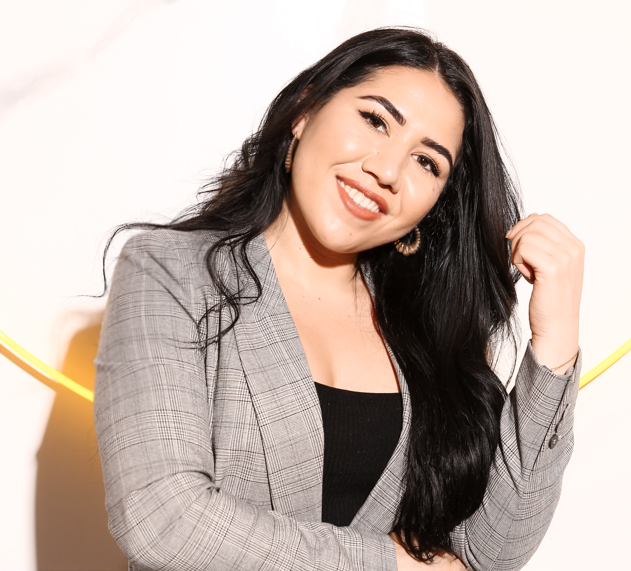Farnoush Amiri is a congressional reporter at The Associated Press, based in Washington, D.C. Before joining the Congress team, she was a statehouse reporter in Columbus, Ohio, through the Report for America/AP partnership. Amiri was born in Tehran, Iran, before immigrating to Southern California with her family at age five. Her first journalism job was as a stringer for her hometown paper, The Orange County Register. Amiri has a bachelors and master’s in journalism from New York University. On Capitol Hill, she covers the House committee investigating the Jan. 6 attack as well as abortion, gun control and other hot button issues as they pass through both chambers. Outside of AP, Amiri is a co-director for the Asian American Journalists Association’s student program, Voices and the vice president of the South Asian Journalists Association.
What is your role at The Associated Press and what led to that?
I am currently covering Congress for AP with our team on Capitol Hill. I began this role in October after coming from AP’s regional team in Ohio where I really got train and prepare for political reporter at the Ohio Statehouse. While in the Midwest, I began to cover police reform and criminal justice in the aftermath of George Floyd’s killing. I think the biggest reason I am able to be successful as a Hill reporter is because I spent that critical time in the states, talking to real people and covering issues as they percolated in local town halls and statehouses.
Tell us more about your experience with Report for America.
I had an amazing experience through the Report for America/AP partnership. I began the job in the early months of the pandemic when I uprooted my life in New York City to move to Ohio. Despite the personal challenges of the pandemic and moving to a new place, the reporting I was able to do through that program is some of the work I am most proud of to this day. What RFA is doing is vital to closing the gaps in news desserts across the country. The specific focus on state government is now more necessary than ever as issues like abortion, guns and even access to vaccines and testing goes back to state control.
What made you interested in a career in journalism?
I became fascinated by the concept of journalism and the power it could yield after seeing, firsthand what lack of it has done in the country I was born in. The ability to hold your elected leaders and government accountable is one of the most important and sadly increasingly rare pillars of any functioning democracy. There is so much power in having access to credible information especially as we go on to live through year three of a deadly pandemic.
You currently serve as the Co-Director of the Voices program with the Asian American Journalists Association. Can you tell us more about what the program does and why you wanted to get involved?
I started with the Voices program as a student in 2019. The program gives college students and early career journalists the opportunity to work on a reporting project in various mediums for three months and present it at AAJA convention. My group and I produced a groundbreaking project that highlighted the massive inequity in some of journalism’s top internship programs. To this day, our story is highlighted in various media critique studies and articles. Becoming a director for the program is my way of giving back to a program and opportunity that truly changed my career.
Not only are you involved with AAJA Voices but you’re also the Vice President of the South Asian Journalists Association. What has been the most rewarding part of being involved in these organizations?
The most rewarding thing about being involved in both SAJA and AAJA is being able to make tangible differences in how newsrooms cover these communities of color. Beyond the networking and awards, both programs are staunch advocates for accurate, fair and inclusive storytelling and members of these organizations represent those values in the various news organizations they work for.
What has been your favorite story that you’ve worked on thus far in your career?
I feel like choosing your favorite story is like choosing your favorite child. I have thoroughly my various reporting projects, but I would have to say a story I had published in November 2020 about how the worsening opioid epidemic was being overshadowed by COVID is one of the most rewarding I have ever done. The story, which was datelined in Ohio, told the story of the uniquely American crisis of opioid overdose through the lens of mothers who have lost their children to the issue. It was connected back to the 2020 presidential election, and it felt like an important story to do because most of the world had shifted their focus to the pandemic.
What advice would you give to aspiring journalists of color looking to land their first internship, fellowship or full-time role?
The best piece of advice I would give to an aspiring journalist of color is to never be the one to say no yourself. I truly believe one of the only reasons I have had any success in journalism is because I went out for things even when I faced imposter syndrome, or the opportunity felt out of my league. Let someone else say no. Don’t do it for them. So, apply to that internship or fellowship or reporting job. Nothing I have I got from waiting for someone to offer it to me.
You can follow Farnoush on Twitter @FarnoushAmiri.

